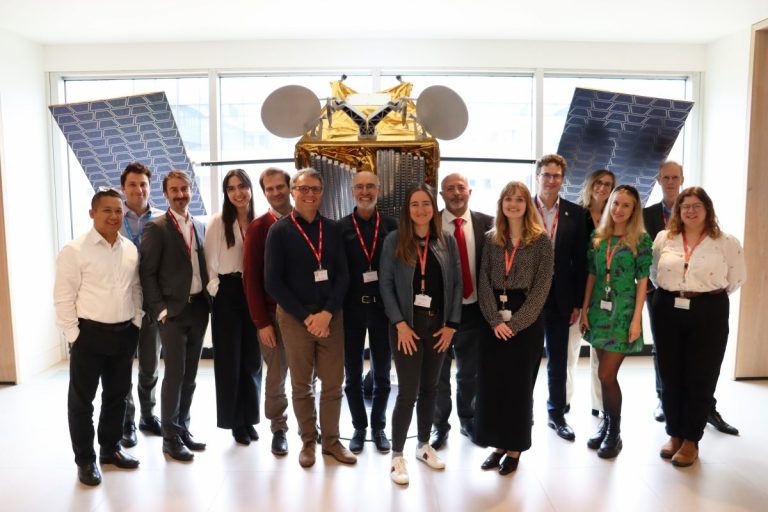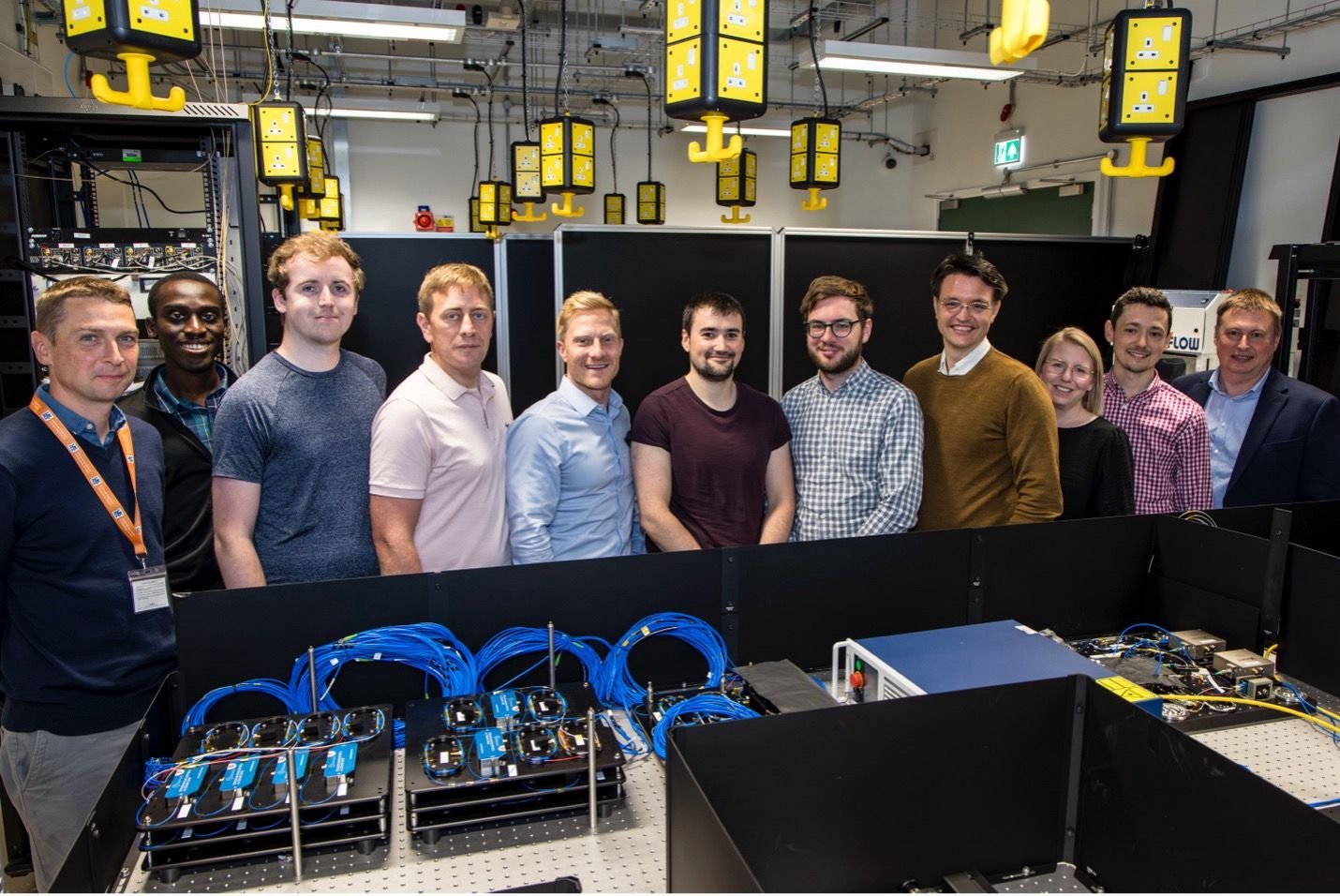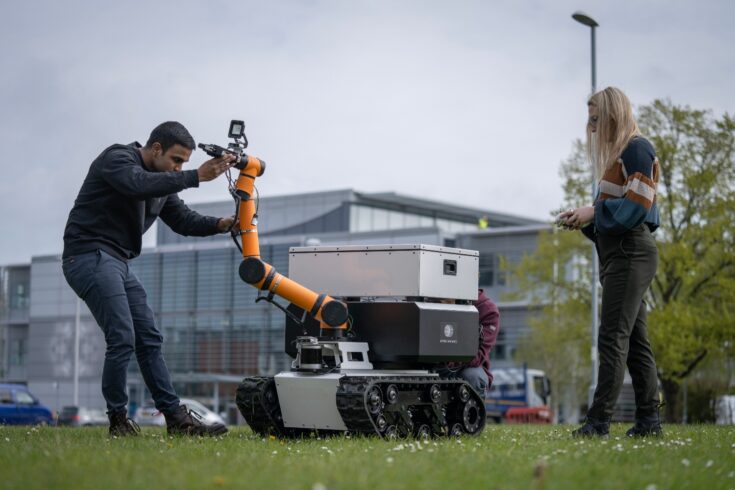
Harwell’s National Quantum Computing Centre signs agreement with IBM
The National Quantum Computing Centre (NQCC) today announces an agreement with IBM for the centre to provide UK researchers with cloud access to IBM Quantum’s Premium Plan, including IBM’s fleet of quantum computing systems, with the aim to drive new research directions based on the use of quantum computing.
Through this initiative, and by joining the IBM Quantum Network, the NQCC further spearheads its vision to enable the UK to solve some of the most complex and challenging problems facing society by harnessing the potential of quantum computing.
The NQCC is co-sponsored by the Science and Technology Facilities Council (STFC) and the Engineering and Physical Sciences Research Council (EPSRC). Its objective is to drive new research horizons by serving the UK academic, research, and public sector communities to enable proof-of-concept projects, feasibility studies and discovery-led science.
“Providing quantum computing access is an important step in contributing towards the national effort”, NQCC Director, Dr Michael Cuthbert said. “The agreement with IBM will enable the NQCC to provide utility-scale quantum computing resources for the UK’s vibrant research community, which will open up new avenues of fundamental and applied research, with the prospect of boosting the development of novel technologies and drive new discoveries”, he commented.
IBM Quantum offers users access to utility-scale processors with more than 100 qubits. These systems deliver performance capable of serving as scientific tools to explore an expanded scale of problems that classical systems may never be able to solve.
“Organisations that collaborate with the NQCC will have the opportunity to access quantum computers which, as shown in recently published research, are capable of accurately modeling a physical system in nature beyond leading classical approaches,” said Dr. Scott Crowder, Vice President, Adoption and Business Development, IBM Quantum. “This Press Release ‘quantum utility’ gives our users the ability to explore hard problems — and to begin extracting real value.”
Aligned with the recently published National Quantum Strategy and the commitment of £2.5 billion of investment, the NQCC as a national lab is committed to working with organisations across government, industry and the research community, to support the delivery of quantum computing capabilities for the UK and build the user community for quantum computing.
The centre seeks to enable the UK to become a quantum-ready nation and take full advantage of the benefits that quantum computing can offer, by supporting the UK-based organisations. It will help to boost access to quantum computing resources for UK-based users and further catalyse its SparQ user engagement programme enabling the user journey from awareness to advocacy. NQCC’s mission complements STFC’s other long-term partnership with IBM: the Hartree National Centre for Digital Innovation programme, which applies AI, data science, high performance computing (HPC), and quantum computing for the benefit UK industry and the public sector.
Where NQCC’s mission is to enable the UK to solve some of the most complex and challenging problems facing society by harnessing the potential of quantum computing, the Hartree Centre and IBM aim to help UK organisations to develop and adopt innovative solutions from the core technologies and apply them to challenges in areas including engineering, materials development, life sciences, energy and environment. There are, therefore, many opportunities for both centres, the NQCC and the Hartree Centre, to collaborate and support UK industry at different stages of the adoption and innovation journey to fully prepare and futureproof the UK economy to gain maximum benefit from quantum computing.
Related news
-

Astroscale UK Secures £11.78 million for Final Phase of ELSA-M In-Orbit Demonstration
Astroscale, based at Harwell Campus, has secured EUR 13.95 million (approximately USD 15 million or GBP 11.78 million) from the UK Space Agency and the European Space Agency (“ESA”) to support the final phase of the End-of-Life by Astroscale-Multiple (ELSA-M) in-orbit demonstration The funding was released following the securing of the contract with Eutelsat OneWeb in the…
-

Infleqtion to install quantum hardware at UK’s National Quantum Computing Centre
Quantum component manufacturer Infleqtion is to install a neutral atom quantum computer at the National Quantum Computing Centre (NQCC) at Harwell Science and Innovation Campus Infleqtion will be the first company to deploy hardware at the NQCC, as part of the center’s quantum testbed program. The news comes on the heels of Infleqtion’s rapid advancement…
-

Oxford Dynamics secures £1 million contract with MOD to develop intelligent robot
Pioneering start-up, Oxford Dynamics, based at Harwell Campus, is developing an advanced mobile AI robot that can replace people as the first point of contact in a hazardous incident, such as a chemical or biological incident. Designed specifically for use by the Department for Environment, Food and Rural Affairs, the robot will operate beyond an…